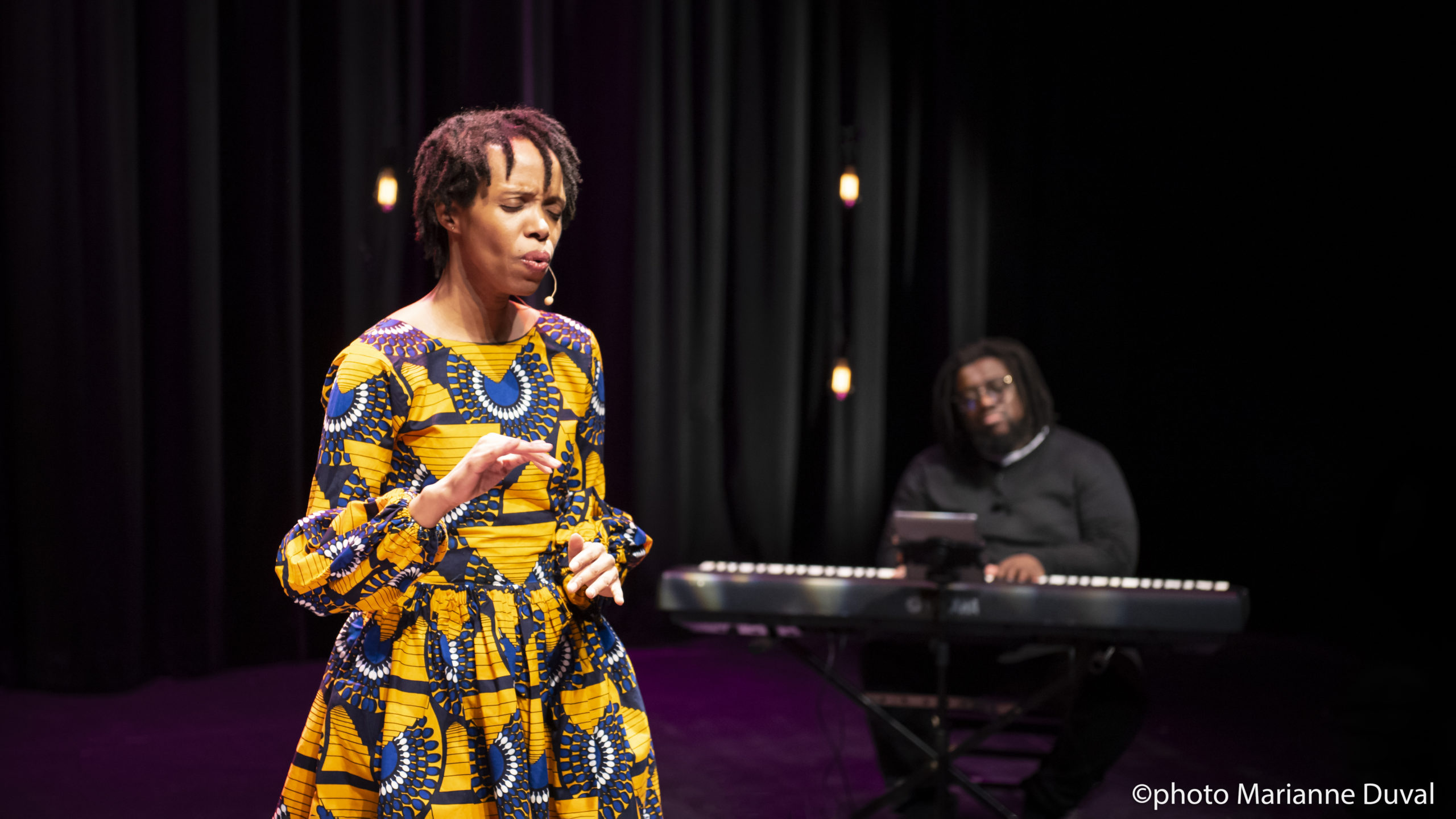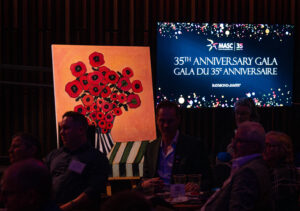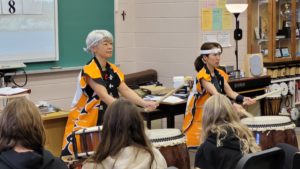Interview: Kellylee Evans shares her thoughts on music, creativity, and community
By Jessica Ruano | December 3, 2021

This interview was originally published on Apt613.ca
Internationally acclaimed Juno Award-winning singer-songwriter Kellylee Evans has been making waves around the world with her energy-charged performances. With six albums to her name, she was no stranger to the hard work involved in making a successful career. Yet, after a life-altering lightning strike in 2013 and then a concussion in 2015, the mother of three was forced to halt her busy schedule. Today, when she’s not performing, Kellylee teaches and speaks about her journey to recovery by sharing her inspiring story.
MASC: Rumour has it, you discovered jazz music while getting lost in the hallways of Carleton University. I imagine there’s a good story in there! What exactly about jazz music made you want to make a career out of it?
Kellylee Evans: That’s true! It’s funny, back then, I was interested in jazz mainly because it seemed like a challenge. I loved researching the different singers and learning their repertoire. But the more I immersed myself in the music, the more I fell in love with being able to create on the spot; with the different sounds that the human voice can make; the sensation of creating with the musicians around me; the way in which the music is never the same way twice. Back then and equally today, jazz seems like the sound of freedom to me.
Hard-working artists such as yourself often have a hard time taking a break. But you were forced to do that in 2013 after being struck by lightning and again from 2015 while suffering the long-term effects of a concussion. How has your relationship to creating and sharing art changed since those incidents occurred?
I would say that creating and sharing art seems less precious to me since those two events happened in my life. I used to think that creating music and getting out into the world to spread that music as far as I could was the most important thing for my career. But the day after my second brain injury in 2015, my album was released. I ended up recuperating for almost two years, during which time I was not able to tour or earn creative income. The touring aspect of my career took a backseat to everyday living in which some days, my main focus was on taking a shower and getting dressed. As I got better, I started to discover the other ways in which I could be of service to my family and to my community. Teaching and mentoring, at first via a 10-month residency at Carleton and now through MASC, have become a big part of that.

Kellylee Evans. Photo provided by MASC.
We’re friends on Facebook, and I remember at the beginning of the pandemic you were encouraging fellow independent artists to help each other be accountable. For example, if you want to write three pages of your novel, give yourself an hour to do that, then have someone check in on you after that hour. How do you maintain productive habits as an artist while still being kind to yourself?
That’s so amazing that you would ask that. You’re describing the process of bookending, which really helps when you find it challenging to complete a task and keep putting it off.
Finding someone to check in with once it is done can definitely motivate one to complete those tasks that seem to be lingering on. I’m making it sound easy, but I still use it from time to time for the sticky tasks I drag my feet on.
My recovery from brain injury actually led to me developing or enhancing more productive human habits, which I think help me when I turn my focus to artistic pursuits. I used to think that to best create, I needed to be loose with time. But my creative output increases the more regimented my schedule is. And my sense of peace about the world also benefits from a stricter schedule.
But the key to this “strict” schedule I create is that it is filled with things that make my heart sing, like daily baths, naps, check-ins with friends, journalling, and quiet time.
As a member of MASC, what do you gain through offering your workshops in schools and in the community?
I gain a sense of knowing that I might have been a part of a student’s decision to pursue the arts or discover more about music or jazz. I may be a part of what inspires a child to pick up an instrument. I may inspire a drawing or allow a child to discover that they too can write a song. I might ease the stress of the day for a student or staff member. During a question-and-answer portion of a show, I may give voice for a child to express themselves. It may be the only time in that day, week, or month that students or teachers get up and dance. Or sing! We may be the favourite part of someone’s day. That’s pretty awesome.
Kellylee Evans. Photo provided by MASC.
Why do you think it’s important for our local community to have access to professional artists?
I’m a part of our community. I belong to my community just as my community belongs to me. It just all makes sense that we have a chance to get together and I’m proud of belong to an organization that works tirelessly to create those connections.
Latest News
View All Articles



